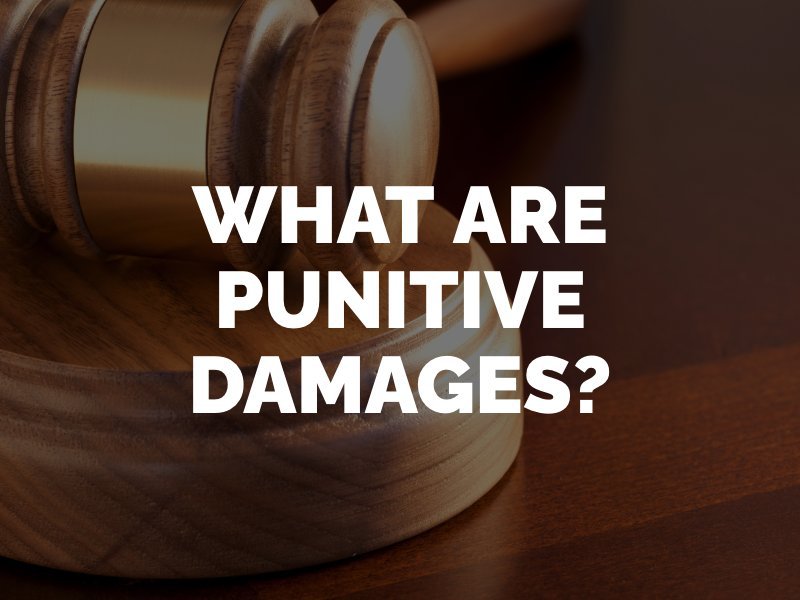What Are Punitive Damages?
The compensation available during a personal injury claim in California has two parts: compensatory and punitive damages. Compensatory damages pay a victim for the financial, physical and emotional losses suffered in a preventable accident. Examples of compensatory damages include medical expenses, lost wages, and pain and suffering. Punitive damages are less common than compensatory. They exist to punish the defendant rather than reimburse the plaintiff. Find out if you could be eligible for punitive damages by speaking with a Los Angeles personal injury lawyer.

Definition Of Punitive Damages
Punitive damages are a form of punishment against a defendant for certain wrongful acts. The courts in California base punitive damages on the defendant’s conduct rather than the plaintiff’s losses. California Civil Code 3294 allows for the collection of punitive damages – also called exemplary damages – in addition to compensatory damages during some personal injury claims. A plaintiff in California must prove through clear and convincing evidence that the defendant committed fraud, malice or oppression to obtain punitive damages.
When Do The California Courts Award Punitive Damages?
Clear and convincing evidence is the burden of proof the California courts place on recovering punitive damages during a civil claim. This standard requires proof that the evidence presented is substantially more likely to be true than not true. The burden of proof rests on the plaintiff. It will be the plaintiff’s (or his or her lawyer’s) responsibility to establish the defendant’s oppression, fraud or malice through clear and convincing evidence.
The statute’s definition of oppression is despicable conduct that forces a victim to suffer cruel and unjust hardship, with an intentional disregard as to the victim’s rights. Fraud means to knowingly deceive a victim through intentional misrepresentation or concealment of a material fact, causing injury or property damage to the victim. Malice can refer to intentional conduct meant to injure the plaintiff or despicable conduct committed with a conscious disregard as to the rights and safety of others.
If you wish to obtain punitive damages during a personal injury lawsuit in California, you or your lawyer will have to prove the defendant guilty of committing one of these torts in connection to the injuries and damages you suffered. If you are bringing a case against a corporate employer, you must also prove advanced knowledge and conscious disregard or authorization of the tort on the part of a director or manager. An attorney can improve your chances of establishing your right to obtain punitive damages during a claim.
How Are Punitive Damages Calculated?
Punitive damages are most common in cases involving serious torts such as homicide. If a judge believes you have met the burden of proof in seeking punitive damages, he or she will grant an award based on the defendant’s actions and ability to pay. The amount awarded in punitive damages is up to the judge’s discretion. No equation or standard exists for calculating punitive damages. A judge will decide on punitive damages according to how reprehensible the defendant’s actions were, as well as in consideration as to the defendant’s financial status. The amount granted will be meant to discourage the defendant’s future misconduct.
Does California Have A Cap On Punitive Damages?
Many states place caps on the recovery of punitive damage awards. A damage cap sets a maximum on the amount of damages a plaintiff can recover. California does not have a punitive damage cap. However, the United States Supreme Court holds that punitive damages cannot grossly exceed compensatory damages. The ratio of punitive to compensatory damages must be reasonable. In cases involving especially reprehensible behavior by the defendant, the laws will allow for higher multipliers for punitive damages. The best way to get an accurate idea of whether you qualify for punitive damages in California is through a consultation with a personal injury lawyer.
